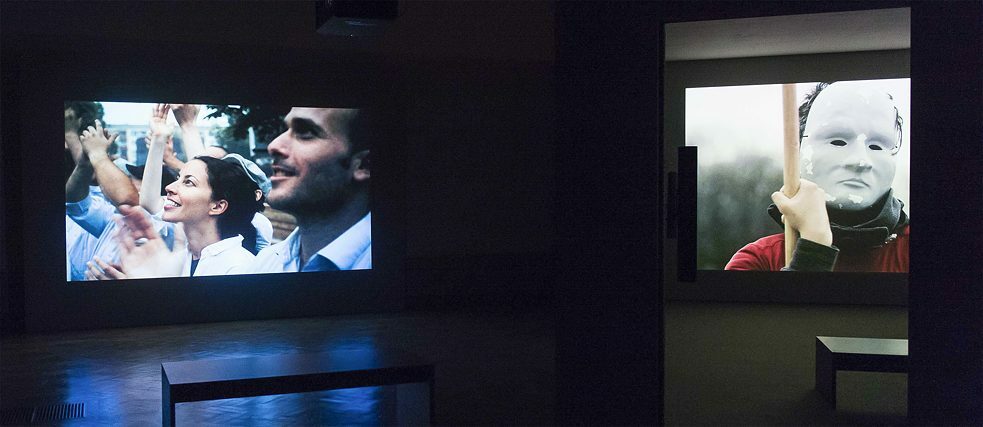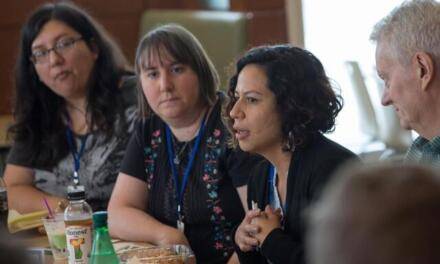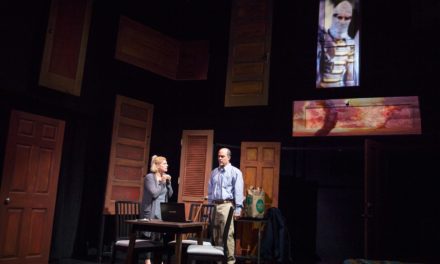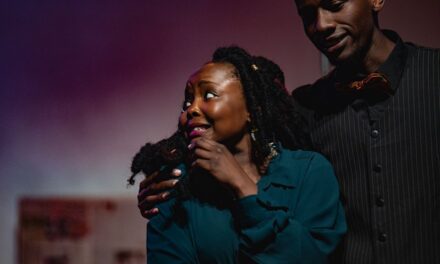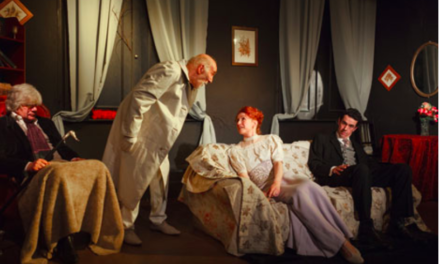Video artist Yael Bartana blurs the boundaries between fact and fiction: her pieces are powerful pictorial documentaries with a poetic appeal; thought experiments with an activist flair.
In her films, photographs and theatre projects, Yael Bartana explores what she calls the “visual language of identities” and “the politics of memory.” Featured in international museums and at film festivals, her pieces call for a change of perspective and encourage what-if thought experiments.
EXPLORING IDENTITIES
Yael Bartana was born in 1970 in a North Israeli workers’ settlement, and for many years her pieces have primarily explored themes of Jewish identity. In her 2013 video Inferno, she stages the building of the Universal Church of the Kingdom of God’s replica of Temple of Solomon in São Paolo and imagines its subsequent destruction. The film, she says, draws parallels to the original Jewish temple’s destruction in Jerusalem in 586 B.C. and the starting point of the Jewish diaspora. Bartana describes this methodical blending of fiction and facts, of prediction and past, as “historical pre-enactment”–an artistic reversal of the conventional reenactment of historical events.
In the 2011 video trilogy And Europe Will Be Stunned, Bartana thematizes the history of Polish-Jewish relations and explores its influence on contemporary Polish identity. The videos revolve around the central question of what would happen if the descendants of the Jews who fled abroad to escape the Holocaust returned to Europe. The piece was her breakthrough into the international art scene.
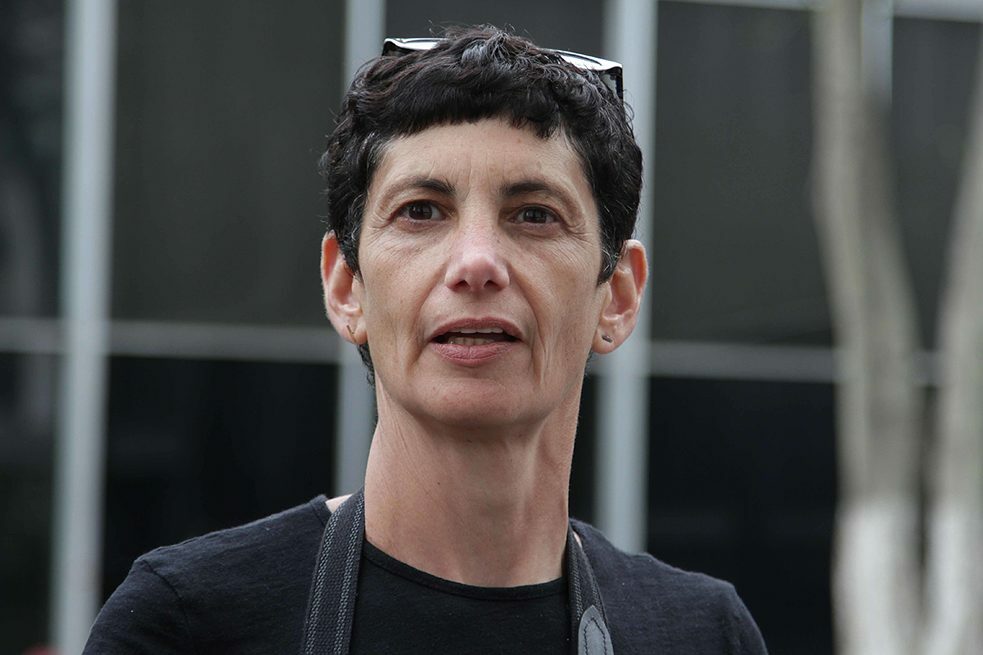
What is fact, what is fiction? Israeli video artist Yael Bartana enjoys using her work to provoke thought experiments.| | Photo: © picture alliance/ZUMA Press
PROVOCATION THROUGH MANIPULATION
The Israeli daily Haaretz describes Bartana as a provocative artist with a “talent for manipulating photographs, words and symbols,” citing her Stalag self-portrait series exhibited in Berlin and New York as an example. In the photos, Bartana stages herself as Leni Riefenstahl, decked out in a SS uniform with the gaze and a film camera directed at the viewer. Here Bartana, who lives in Berlin, deliberately plays with taboo Nazi symbolism, she revealed to Haaretz, saying it was like “returning to the scene of the crime and trying to find an ending.”
WOMEN AT THE ROUND TABLE OF WORLD POWER
Her most recent piece, What if Women Ruled the World?, explores women’s identities in a play of the same name. Bartana brings diverse actresses together with female activists and politicians on stage. The artist told art magazine Monopol the production at the Berlin Volksbühne was less inspired by the me-too debate than by the desire to create a thought experiment about whether conflicts would be more peaceful if only women were in charge.
“I have always had a strong urge to disobey the system, to change it.” Of herself, she says, “I’m an activist who creates pictures.”
Translation: Sarah Smithson-Compton
This article appeared in Goethe Institut on March 2019, and has been reposted with permission.
This post was written by the author in their personal capacity.The opinions expressed in this article are the author’s own and do not reflect the view of The Theatre Times, their staff or collaborators.
This post was written by Romy König.
The views expressed here belong to the author and do not necessarily reflect our views and opinions.

